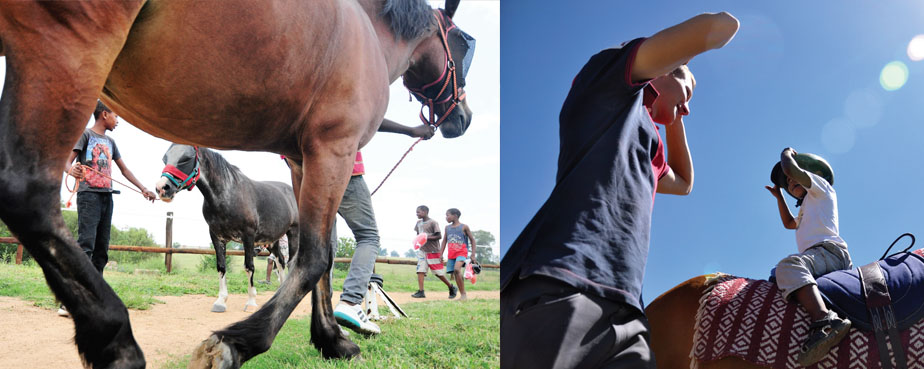A MESSAGE FROM HENRY

LENDING A HELPING HAND
Unfortunately, the 2020 Jack Cheetham and Letsema Awards were cancelled as a result of the COVID-19 pandemic. Says Brenda Mantje, corporate social responsibility coordinator at Murray & Roberts: “We were unable to proceed with the awards. We were also aware that many of the organisations we support were struggling as a result of the lockdown and the curtailment of their fundraising initiatives.
“We then identified previous beneficiaries who were responding to the pandemic in their communities, and we were fortunate to be able to provide some financial assistance through the Murray & Roberts Letsema Sizwe Trust.”
Shumbashaba was the winner of the 2012 Letsema Award. Nine years on, the impact of its programme is still being felt primarily in the Diepsloot community. Diepsloot is a township accommodating some 250 000 residents, most of whom are young people. They experience high levels of trauma, brought on by problems such as
unemployment, poverty, crime, substance abuse, child abuse and gender-based violence.
Says Sharon Boyce, founder of Shumbashaba: “The pandemic has been increasingly difficult for the organisation to cope with as our usual fee-paying client base, which contributes a significant portion of our funding, has been reduced to almost nothing.”
At the same time, the need for food and basic resources in the Diepsloot community has increased exponentially. The all-toofamiliar challenges that come with living in abject poverty – in particular, unemployment, food insecurity and trauma as a result of gender-based violence – have been exacerbated by the various COVID-19 lockdowns.
In response to this crisis, Shumbashaba deployed its skills and resources to assist the families of the 800 children who attend its youth development programme. Its efforts have borne fruit: In the past few months, the organisation has distributed more than 2 000 food parcels and has delivered food vouchers to the value of R130 000. It has also initiated a weekly soup kitchen that feeds approximately 200 children and their families.
Along with the Saturday soup kitchen, Shumbashaba developed and implemented an activity-based programme to promote and restore resilience in children and the youth. In addition, the organisation enrolled its youth coordinators in a Psychological First Aid course to better equip them to deal with their own stress and, in turn, enable them to respond to signs of trauma and psychological crisis in the wider community.
The Shumbashaba therapeutic riding programmes are currently not fully operational as the beneficiaries of this programme reside in community care and residential facilities, which remain closed to outside activities. However, the organisation hopes to resume equine-assisted psychotherapy to survivors of gender-based
violence and other trauma soon.
Sharon concludes on a positive note by saying: “Despite the challenges, COVID-19 has given us the opportunity to really think hard about what we do. In order for all of us at Shumbashaba to be responsive to the needs of the community, our focus must be on food security and the promotion of wellness interventions. We are less about running a therapeutic riding programme, and more about driving a community and youth development programme that utilises nature, as well as horses and other animals, to help childre and adolescents to recognise their self-worth – and in this way, gain the life skills and that sense of empowerment needed to build a meaningful and hopeful future for themselves.”

